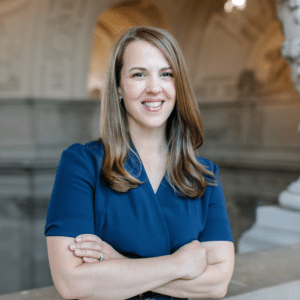
By ProFellow Founder, Dr. Vicki Johnson
International travel, hands-on professional development, and global connections are just a few of the many benefits of receiving a Fulbright Award. The U.S. Student Program for Study/Research and English Teaching Assistantships are two of the most popular types of Fulbright grants. Designed for recent U.S. graduates, these awards offer the opportunity to complete an independent research project or teach English in over 140 countries. Be sure to confirm the deadlines for your specific program on the Fulbright website.
Fulbright awards are highly competitive and the application process can be involved. However, on the other side of all those essays, recommendation letters, and interviews is a potentially life-changing year of new experiences in a foreign culture. Over the years, our many interviews with Fulbright alumni have given us insight into the application process. Here are the top 7 tips from successful alumni on creating a successful application!
Want insider strategies for your Fulbright application? Purchase the Fulbright Applicant Mastermind workshop by ProFellow Founder and Fulbright Award Winner, Dr. Vicki Johnson.
1. Choose a country strategically
Stephanie Clemente, a Fulbright ETA to Indonesia, gave us some unique insights into her strategy when choosing a country to apply to:
“Focus on the number of awards available for each country and think critically about the competition and applicant pool. For example, in Europe, Spain is a popular choice for ETAs. However, if you consider the number of positions and the number of other applicants who have a more significant connection to Spain, it might be worthwhile to create a list of options. List what you hope to gain from applying to that country to see if you can have a similar experience by applying to another country with a similar culture, language, or with a larger number of awards offered each year. I narrowed mine down to Turkey and Indonesia to learn about Islam outside of the Middle East. Ultimately, I chose Indonesia due to the number of awards offered in comparison to Turkey.”
2. Tell a story
Anthony Sis, a Fulbright ETA in Portugal, suggests that we should think about crafting a story with our applications:
“Many people will write a statement in a professional format, but the readers of these statements will be reading hundreds of applications with a similar format. Start off with a personal narrative that directly relates to your [why], and I guarantee you that the statement will be much stronger and stand out among a pool of applicants. My personal narrative began with how I picked up a second language growing up due to linguistic barriers between my grandmother, who took care of me for many years while my parents were working. This tied back to my interest in applying for a Fulbright ETA grant to Portugal. Don’t be afraid to be a little vulnerable and a little personable in communicating why you would be the best fit.”
3. Read the Fulbright Act and use its language in your essays
Elizabeth Pantaleon, the first Fulbright ETA in the West Bank/Palestinian Territories, had a great suggestion for creating a compelling application:
“I personally highlighted important phrases from the Fulbright charter, the Fulbright website’s mission, as well as the post’s country profile. I made sure to incorporate this language into my story. This helps you stay focused on the purpose of this program and exchange experience.”
4. Ask for feedback
Victoria Shover, a Fulbright ETA in Santander, Spain, noted the importance of getting feedback along the way:
“To complete the application, I sought out help from my college’s writing center, professors, and friends who were English majors. Each time I revised my essays and applications with someone, it helped me to consider and defend what I wrote. The different perspectives helped me fine-tune my application and polish both my Personal Statement and Statement of Grant Purpose.”
5. Choose recommenders who know you
Chante Mayers-Barbot, a Fulbright ETA in South Africa, reminded us that it’s essential to seek our recommenders who know you instead of going after those with “impressive” titles:
“When it comes to recommendation letters, ask those who know you best. An individual’s title (ex. A CEO of a company you interned for and rarely interacted with) isn’t as important as how well your recommender knows you (ex. a professor or advisor might be a good choice). Remember they have to write a thorough recommendation and speak to your abilities to teach and be a successful ETA, so they have to know you well. Maybe you’ve heard this one a thousand times before, but it’s so true!”
6. Prepare for your interview
Istou Diallo, a Fulbright Student Research Fellow to India, underscored the importance of doing research about your topic and country when preparing for your interview:
“When interviewing, it is important you know both your topic and country of choice through and through. Make sure to know historical facts, and be well-phrased in the country’s current events, policies, the present government in power and their relationship to the US. Interviewers want to deduce how feasible your project is, so it is important to demonstrate your gameplan fully.”
7. Just do it
Finally, for those of us needing an extra push, Jenny Simon, a Fulbright ETA to Mongolia, gave us this great reminder:
“The first and most important tip I have is to just do it. I was not going to apply for Fulbright because I thought I was not going to get it. I did not think I was going to get it until I got it. It is very easy to feel like you are not good enough; the application is lengthy, the wait time to hear back about your application is unbearable, and doing all this on top of your normal obligations might seem insane; however, the experience is worth it. There is so much to learn by going abroad and through the opportunities the fellowship offers.”
Thinking of applying for a Fulbright? Check out the New 2024-2025 Fulbright U.S. Student Program Awards for Students and Young Professionals and our other Fulbright application tips articles.

Dr. Vicki Johnson is Founder and CEO of ProFellow, the world’s leading online resource for professional and academic fellowships. She is a four-time fellow, top Ph.D. scholar, Fulbright recipient and an award-winning social entrepreneur. She is the Creator and Director of Fully Funded, an award-winning online course and mentorship program for graduate school applicants seeking to find and win full funding.
© Victoria Johnson / ProFellow, LLC 2020, all rights reserved